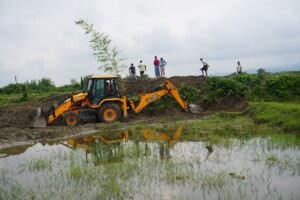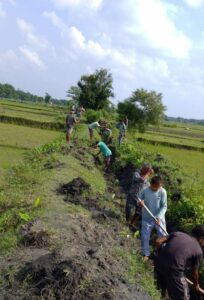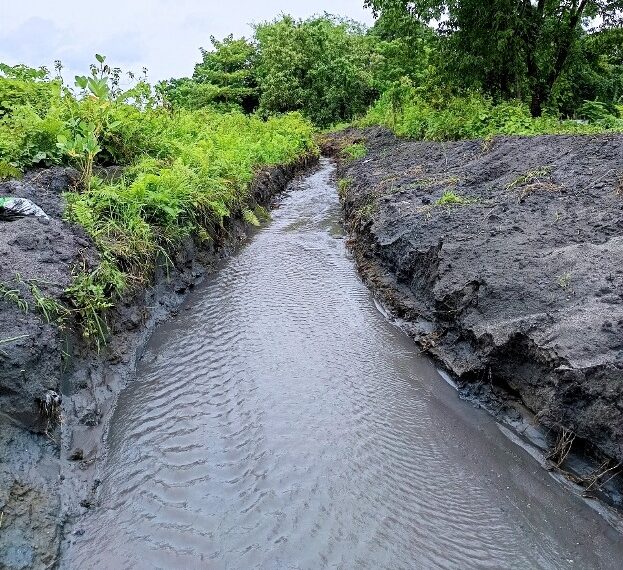Guwahati: In a significant move to strengthen rural resilience against climate change and revive traditional water management, biodiversity conservation organization Aaranyak, with support from LIC Housing Finance Ltd. (CSR initiative), has successfully restored two crucial community-managed irrigation canals, known locally as “dongs,” in Assam‘s Udalguri district.
The ’Bhawani Dong’ in Uttor Garuajhar and ‘Orang Dong’ in Sonajuli village—both located in Bhergaon Block of Udalguri district—play vital role in fulfilling community’s water needs.
The “dong” system is an age-old water distribution method utilized by the indigenous Bodo community. It involves diverting river water through earthen canals to irrigate agricultural lands and fill local ponds, serving both household and farming requirements.
These traditional systems are particularly critical in areas near the Indo-Bhutan border, where water scarcity during dry seasons is a recurring challenge, making them crucial for ensuring access to water and food security.

Historically, the dong system operates on a community-driven model of water governance. Local committees traditionally oversee the maintenance of these earthen canals, which channel water from rivers into villages and farmlands. However, over time, neglect, sedimentation, and climate-related changes have rendered many of these systems non-functional.
The ‘Bhawani Dong‘, a vital irrigation channel, serves approximately 1,500 households and over 10,000 people. In recent years, its water flow has drastically reduced during the dry months (January to March), leaving farmlands parched and downstream villages like Kaachari Basti, Gaonburha Basti, and Jhara Basti with minimal or no water access. This led to reduced agricultural output and increased hardship.

Following its restoration, the ‘Bhawani Dong’ now provides a consistent water flow, enabling timely irrigation, reactivating abandoned agricultural lands, and improving water availability even in previously neglected downstream areas.
Similarly, in Sonajuli village, home to around 120 households and over 650 people, the ‘Orang Dong‘ is the primary irrigation source for nearly 500 bighas of farmland.
Its repair has been transformative for the village, especially during the pre-monsoon and kharif seasons when a timely water supply is critical for crops. With the Dong now functioning efficiently, villagers have resumed cultivation with renewed confidence, significantly reducing the risk of crop failure due to the water crisis.
ALSO READ: ONGC to bring US expert to contain leakage in gas well in Assam’s Sivasagar district
The success of these restorations extends beyond simply bringing back flowing water. It marks a crucial revival of traditional knowledge systems and community-led governance. Local water management committees have been reactivated to oversee fair water distribution, resolve disputes, and ensure the continued maintenance of the dongs, fostering long-term sustainability.















